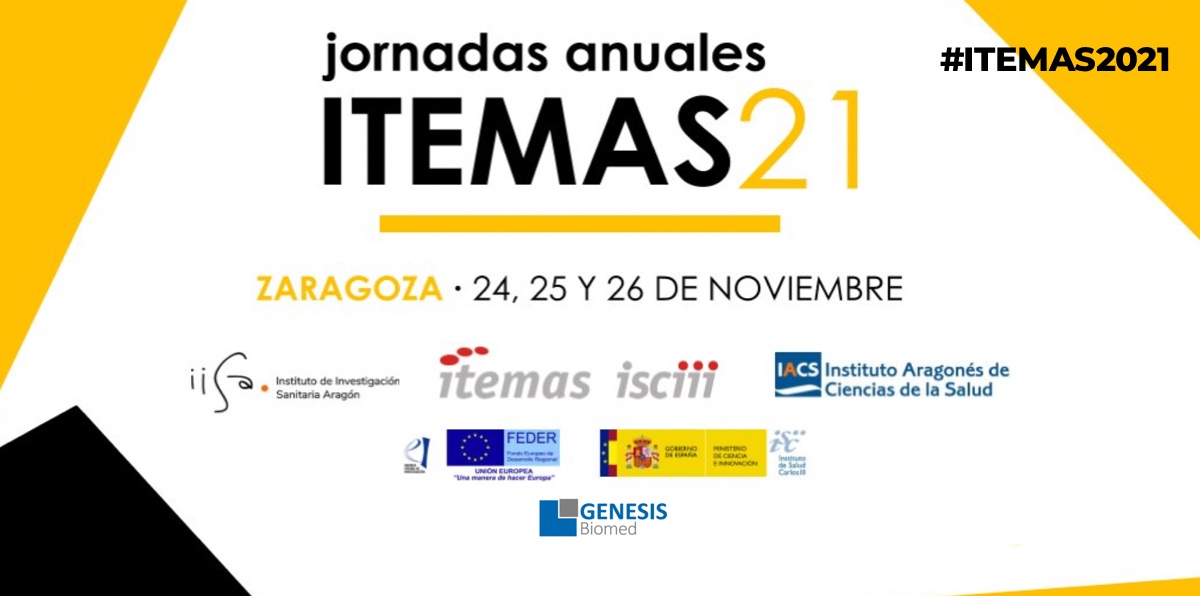15 Dec GENESIS Biomed sponsors the ITEMAS 2021 Annual Conference

The Instituto Aragonés de Ciencias de la Salud (IACS) and the Instituto de Investigación Sanitaria de Aragón (IIS Aragón) have organised this conference on 24, 25 and 26 November in collaboration with the current coordinators of the ITEMAS-ISCIII platform, the Consorci Corporació Sanitària Parc Taulí, and the sponsorship of GENESIS Biomed.
The conference brought together more than 150 specialists from the 60 hospitals that make up ITEMAS to share ideas and discuss the challenges of innovation in the healthcare system, focusing on two important aspects.
The first of these has been the importance of technology transfer and of the hospitals’ IAUs (Innovation Support Unit) in order to transfer knowledge and thus ensure that the innovation projects that emerge from the health system itself become a reality. This requires the collaboration of all agents and co-creation in the development of innovation projects generated by the healthcare system. Researchers, healthcare professionals and specialists from innovation companies agree on the need to industrialise all those initiatives that originate in the healthcare system itself and that need external support to become tools for change. During the conference, it was discussed that one of the ways to promote this is through the creation of start-ups that will not only generate employment, but also retain talent and thus promote the growth of the commercial net.
But to carry out the creation of these start-ups and advance in the innovation project, public and private funding is needed. Our CEO Josep Lluís Falcó spoke about private investment and participated in the round table of investors, where, in addition to talking about the present and future situation of investment in health, he explained his experience with the GENESIS Ventures investment fund, an investment vehicle managed by GENESIS Biomed, which invests in very early stage technologies and already has a portfolio of 12 investees, including 1 exit.
Secondly, the importance of the work carried out in recent years in the field of health data analysis for more accurate decision-making was discussed at the conference. In this respect, the experts highlighted Spain’s advantageous situation in terms of legislation, which allows access to real, anonymised health data for use in research. But also, to carry out epidemiological control in real time, which is proving so useful during the health crisis generated by COVID. Along these lines, Spain already has some pioneering projects that use health data to facilitate decision-making in health and which represent a potential for future projects in these aspects.


